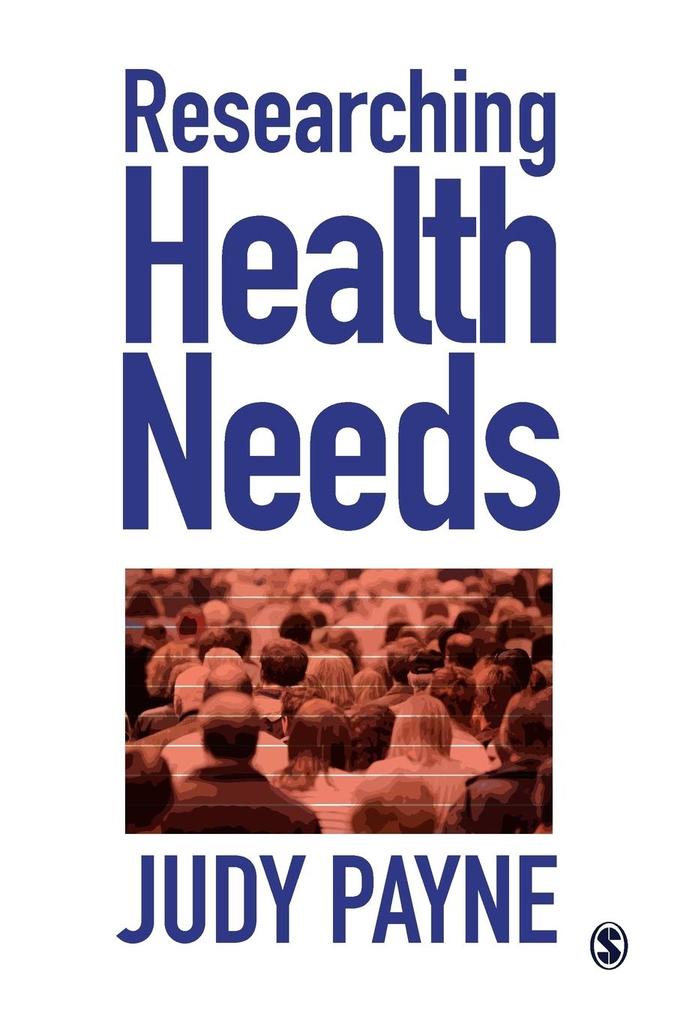Service
Spiegel Bestseller Belletristik
Spiegel Bestseller Sachbuch
Internationale eBooks
eBooks auf Englisch
Abo jetzt neu
Hörbuch Downloads
Weitere Sortimente

The book guides the reader through the process of producing evidence about health needs, from the initial planning stages of research to writing up, getting the message across, and trying to influence policy and practice. All of the methods are described in a simple and, as far as possible, non-technical way, and are extensively illustrated by concrete examples from exisiting studies.
This practical guide to assessing health needs provides a comprehensive, and at times imaginative, approach to applied social research. Key features of the text include: coverage of both social survey methods and qualitative approaches; a review of methods for investigating health status and community profiling, along with longitudinal and evaluative studies; a section on using the internet to access information, with details of relevant international and UK websites; inclusion of visual techniques for collecting data, along with guidelines for incorporating these into mixed-methods studies; extensive use of case studies; and practical exercises at the end of each methods chapter.
This accessible and practical introduction to applied social research will be an essential text for undergraduate and post-qualification students in health, community work, and social care. It will also be an invaluable tool for practicing professionals in these fields.
'The overall style and presentation of the book is good with useful figures, chapter summaries, self-assessment exercises and case studies. The book is well-organised with logical progression through the stages of health related social research. Complex issues are described with clarity and explored in relation to actual examples that should enhance their accessibility for inexperienced researchers. The style of the book lends itself to use as a reference book and this allows it to be used over an extended time period by individuals, as their interest or experience grows'
- Physiotherapy
Researching Health Needs is an easy to use introductory guide to the main social research techniques used to gather evidence about the health needs of local communities.
The reader is taken through the process of producing evidence, from the initial planning stages of research, to writing up, getting the message across, and trying to influence policy and practice. All of the methods are described in a simple and, as far as possible, non-technical way, and are extensively illustrated with concrete examples from existing studies.
The author has adopted a comprehensive, and at times imaginative, approach to applied social research. Key features of the text include: coverage of both social survey methods and qualitative approaches; review of methods for investigating health status and community profiling, along with longitudinal and evaluative studies; a selection on using the Internet to access information, with details of relevant international and UKwebsites; inclusion of visual techniques for collecting data, along with guidelines for incorporating these into mixed-methods studies; extensive use of case studies; and practical exercises at the end of each methods chapter.
Inhaltsverzeichnis
'The overall style and presentation of the book is good with useful figures, chapter summaries, self-assessment exercises and case studies. The book is well-organised with logical progression through the stages of health related social research. Complex issues are described with clarity and explored in relation to actual examples that should enhance their accessibility for inexperienced researchers. The style of the book lends itself to use as a reference book and this allows it to be used over an extended time period by individuals, as their interest or experience grows'
- Physiotherapy
Es wurden noch keine Bewertungen abgegeben. Schreiben Sie die erste Bewertung zu "Researching Health Needs" und helfen Sie damit anderen bei der Kaufentscheidung.